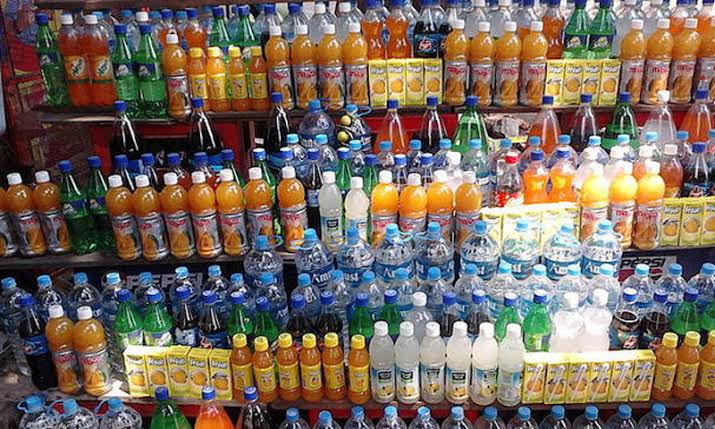Stakeholders across the organized private sector in Nigeria have raised concerns over proposals to increase the Sugar-Sweetened Beverage (SSB) tax, citing significant setbacks that will grossly impact the already struggling sector. They argue that the proposal for a tax hike is contentious at best considering Nigeria’s existing economic challenges.
With soaring inflation rates, unemployment, public debt, and poverty rates, industry leaders warn that further straining the economy with additional taxes may exacerbate existing hardships. A closer look at the value chain reveals the broad-reaching impact that the proposed SSB tax will have. It will severely impact not just manufacturing organisations but the distribution channel including petty retailers, and low-income consumers.
Despite the renewed clamour for these taxes with the hopes that they will encourage lifestyle changes and improve health, it is important to note that the claims are not evidence-based. There is no real-world evidence that supports the claims that taxation of soft drinks will reduce obesity or NCDs.
The most recent assessment of SSB tax effectiveness undertaken by WHO’s Guidelines Review Committee confirms the lack of evidence and WHO is still unable to grade SSB taxes as a best buy intervention. There are, however, documented negative economic effects of such selective taxation, which in Nigeria’s case, runs against the government’s current policy on increasing sugar production in the country – a task that is expected to boost local production, create more jobs, and invariably enhance the livelihoods and wellbeing of Nigerians.
In 2021, when the sugar tax was first implemented, the manufacturing industry suffered major setbacks, with as much as 8 percent to 10 percent decline in profit, with the Food and Beverage sub-sector experiencing a negative GDP growth. By all indications, the proposed tax hike threatens to disrupt the demand dynamics and could hinder progress towards achieving local sugar sufficiency targets outlined in the Nigerian Sugar Master Plan (NSMP).
When the Federal Executive Council approved the extension of the National Sugar Master Plan by 10 years, the vision was that the demand for refined sugar will boost investments in the sector and lead the country to attain at least 70 percent of self-sufficiency in sugar production in the shortest time. Despite the government’s endorsement of the NSMP, signalling a commitment to diversifying the economy through agriculture and industrial manufacturing, any significant increase in the SSB Taxes will undoubtedly pose a significant obstacle to attaining its objectives.
Critics also emphasize the interconnectedness of economic prosperity and human well-being, noting that several health-related issues crop up when people are not economically or financially buoyant – affecting their mental and physical health. The government needs to ensure that industry is further safeguarded by actions that could potentially throw more people out of jobs as companies struggle to survive.
Recall that as part of the Finance Act of 2021, an SSB tax of N10 per litre was imposed on non-alcoholic and sugar-sweetened beverages. However, going by recent events there appears to be a renewed call from some quarters for this tax to be increased by 1,200 percent to N130 per litre.
Groups like the Corporate Accountability and Public Participation Africa (CAPPA) claim that such measures aim to discourage excessive sugar consumption, which they believe is also linked to the increase in non-communicable diseases like obesity and diabetes.
Read Also: Nigerian researchers discover new water treatment solution to fight pathogens
However, examining the experiences of other countries like Finland, Mexico, Chile, Ireland and the United Kingdom, taxation on sweetened beverages has failed to show significant health benefits as these countries continue to grapple with a rise in obesity.
In the United Kingdom, sugar tax was implemented in 2018, and since then, there is still no fact-based evidence to support that such a measure can curb the rate of obesity. On the contrary, obesity rates in the UK have remained the highest in Europe.
Denmark’s case, where the government introduced taxation on products high in saturated fats in 2011, serves as another example of the limitations of using taxation for health issues. On its introduction, it was celebrated as a world-leading health policy. However, their economy was soon worse for it with inflation rising to 4.7 percent in a year and real wages falling by 0.8 percent. Consequently, the policy was repealed barely fifteen months after it was introduced.
Contrary to the Pro-SSB tax school of thought, Nigeria doesn’t have a sugar problem. According to the National Sugar Development Council (NSDC), the country’s sugar intake is lower than most countries. In 2021, the per capita sugar consumption in Nigeria was approximately 8kg. This is significantly lower than the global average of about 21.4 kg per person and the WHO-recommended limit of 9kg, an indication that Nigerians fall within the limit of World Health Organization’s (WHO) recommended daily sugar intake.
What is evident, however, is that such fiscal measures upon sweetened carbonated drinks in terms of price modifications will only lead to a high transfer of the tax to the final consumer. In the case of Nigeria, that would essentially mean that the already burdened consumers will now have to deal with even more financial problems. Moreover, others argue that such a fiscal policy measure on sweetened beverages only highlights the potential of governments to interfere with personal freedoms. As in most places where such taxes have been implemented, consumers often look for cheaper and, in most cases, unhealthier and unregulated substitutes.
Amid all these challenges, the beverage industry is calling for a broader, more holistic, multi-sectoral approach to combating the challenges of obesity and other non-communicable diseases. Perhaps this is the time for more constructive dialogue with policymakers to find evidence and data-backed solutions peculiar to this operating environment that would really address public health imperatives. Collaborative efforts and pragmatic solutions are deemed essential as Nigeria navigates these uncertain times.






